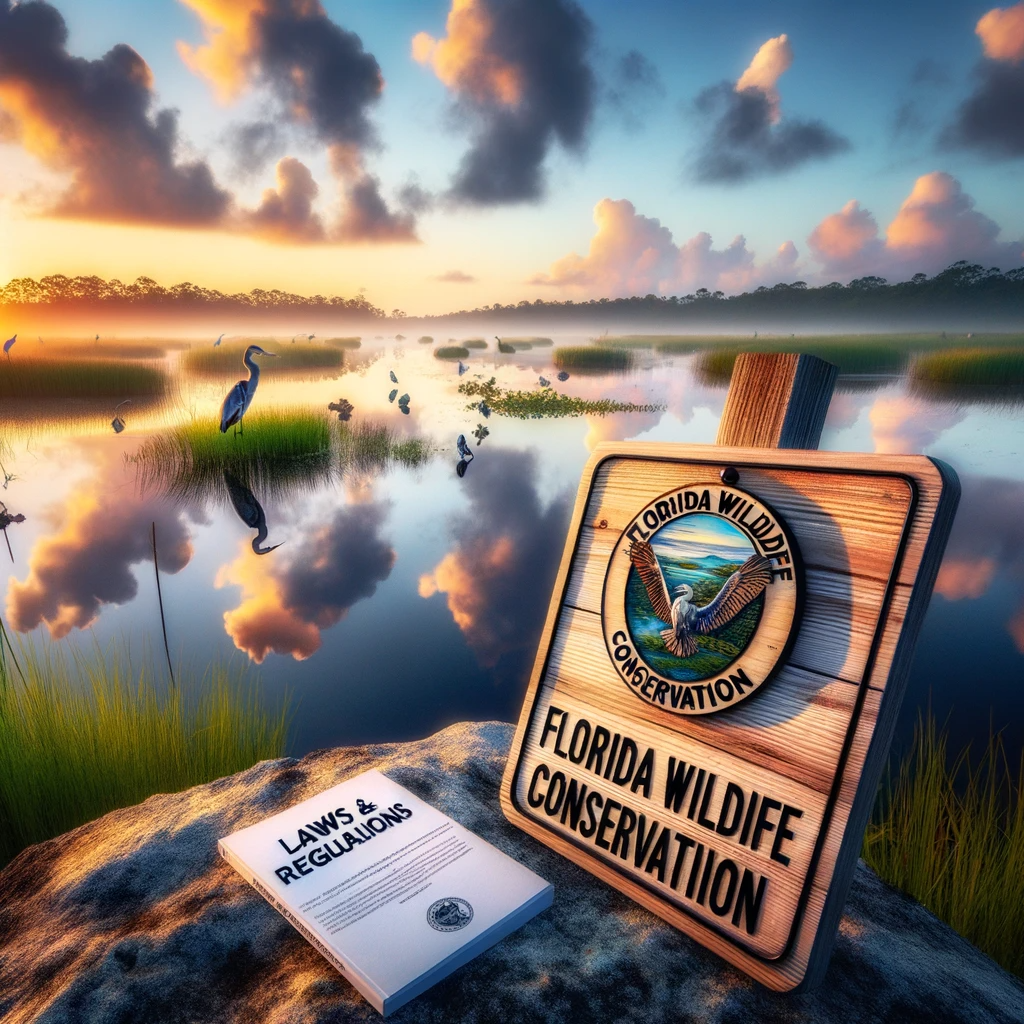FWC Law Myths: Debunking Common Misconceptions
Florida, with its sprawling wetlands, dense forests, and vast coastal regions, is a haven for biodiversity. The Florida Fish and Wildlife Conservation (FWC) Commission plays a pivotal role in safeguarding this ecological treasure. However, with such vast and varied regulations, misunderstandings are bound to arise. This article aims to address and debunk some of the most common myths surrounding FWC laws.
Myth vs. Reality
Reality: FWC officers are trained professionals with a broad mandate. While wildlife conservation is at the heart of their role, their jurisdiction extends to boating safety, environmental protection, and even certain state and federal statutes. Their comprehensive training ensures they’re adept at addressing a spectrum of challenges.
Myth 2: All wildlife offenses are minor and carry light penalties.
Reality: The gravity of wildlife offenses varies significantly. While some infractions might result in warnings or minor fines, others, especially those that threaten endangered species or habitats, can lead to severe penalties, including imprisonment.
Myth 3: FWC laws only apply in protected areas or reserves.
Reality: FWC regulations are state-wide. Whether you’re in downtown Miami or the heart of the Everglades, FWC laws are in effect. This comprehensive coverage ensures that wildlife and habitats are protected across Florida.
The Origins of Misconceptions
In today’s digital age, misinformation can spread like wildfire. A misinterpreted regulation, an exaggerated personal account, or even a misleading social media post can sow seeds of confusion. Moreover, FWC laws, given their comprehensive nature, can sometimes be complex, leading to genuine misunderstandings.
The Consequences of Misunderstandings
Misinterpreting FWC laws can have far-reaching consequences. For the individual, this could mean hefty fines or legal repercussions. For the environment, unintentional violations could lead to ecological imbalances. Overfishing, for instance, can deplete fish stocks, affecting the entire aquatic ecosystem.
Beyond the Myths – Lesser Known FWC Facts
The Florida Fish and Wildlife Conservation Commission (FWC) has a vast array of regulations, many of which are lesser-known but equally significant. These regulations, while not always in the limelight, play a crucial role in preserving Florida’s ecological balance.
1. Drone Regulations in Wildlife Areas:
While drones have become popular tools for capturing Florida’s scenic beauty, their use in certain wildlife areas is restricted. This is to prevent disturbances to nesting birds, wildlife habitats, and other sensitive ecological zones. Before flying a drone, it’s essential to check if the area falls under these regulations.
2. Plant Protections:
Florida’s flora is as diverse as its fauna. Certain plant species, due to their ecological significance or endangered status, are protected under FWC laws. This means that activities like uprooting, picking, or even damaging them can lead to penalties.
3. Wildlife Interaction Guidelines:
While it’s a thrill to encounter wildlife in their natural habitat, there are guidelines on how to interact with them. For instance, feeding wild animals is often prohibited as it can lead to dependency, alter natural behaviors, and even pose risks to humans.
4. Special Hunting Seasons:
Beyond the regular hunting seasons, there are specific times and regulations for hunting invasive species. These seasons aim to control populations of non-native species that might pose threats to local ecosystems.
5. Marine Life Regulations:
Florida’s marine life is vibrant and diverse. But did you know that there are specific regulations for collecting marine life for aquariums? These rules ensure that marine populations remain stable and that species aren’t overharvested.
6. Light Pollution Guidelines:
Certain wildlife areas in Florida have guidelines on light pollution. Excessive or misdirected lighting can disorient wildlife, especially species like sea turtles that rely on natural light cues for activities like nesting.
7. Wildlife Rehabilitation Protocols:
If you encounter injured wildlife, there are specific protocols to follow. Not every animal needs rescuing, and sometimes, human intervention can do more harm than good. FWC provides guidelines on when to intervene and how to safely assist injured or distressed animals.
By understanding these lesser-known regulations, residents and visitors alike can play a more informed and active role in conserving Florida’s rich biodiversity.
Understanding FWC laws is not just a legal necessity; it’s a testament to our commitment to preserving Florida’s natural heritage. By debunking myths and staying informed, we can ensure that Florida remains an ecological paradise for generations to come. If you’re ever in doubt about FWC regulations or need legal guidance, don’t hesitate. Reach out to Sando Law. We’re here to help!
Sando Law, P.A. represents clients pre and post criminal charges, clients facing fish and wildlife violations, and clients in need of immigration counsel.


